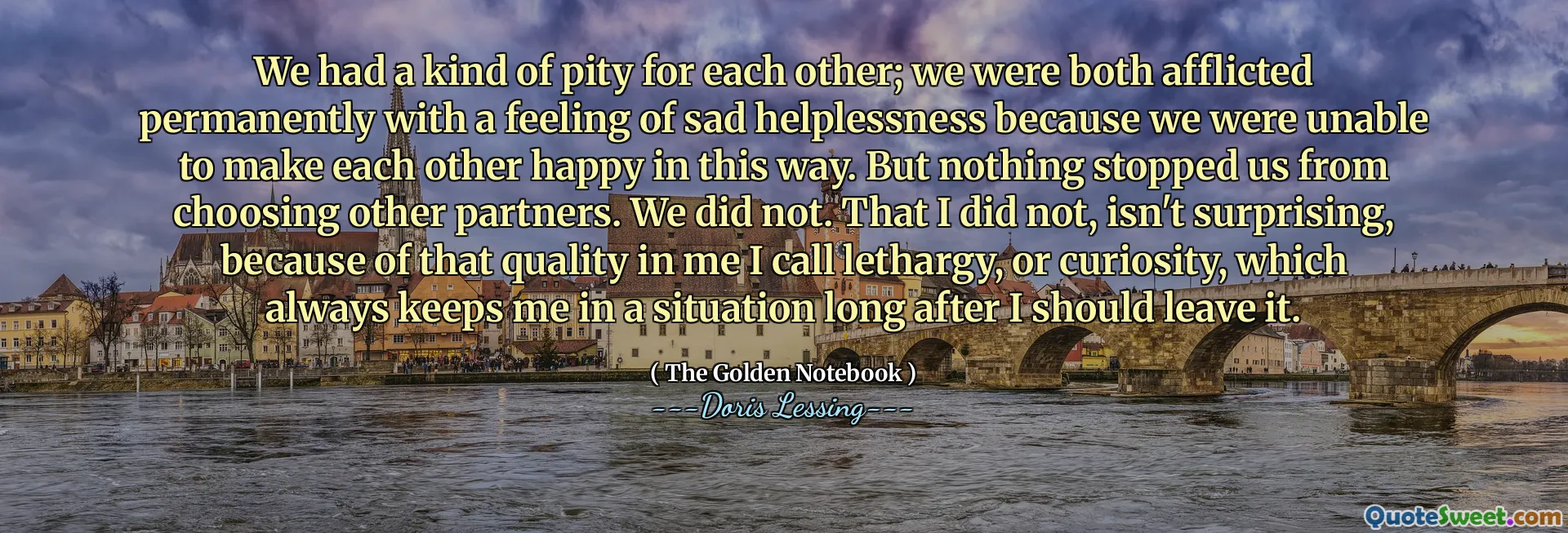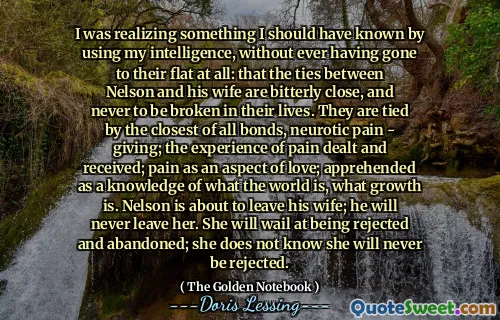
We had a kind of pity for each other; we were both afflicted permanently with a feeling of sad helplessness because we were unable to make each other happy in this way. But nothing stopped us from choosing other partners. We did not. That I did not, isn't surprising, because of that quality in me I call lethargy, or curiosity, which always keeps me in a situation long after I should leave it.
This quote from Doris Lessing's 'The Golden Notebook' delves deeply into the subtleties of human relationships, highlighting a complex blend of empathy, stagnation, and curiosity. The speakers describe a connection rooted in mutual pity and an ongoing sense of helplessness—an acknowledgment of shared emotional limitations. Such feelings can foster a fragile bond, one that inhibits genuine happiness but also prevents decisive change. The acknowledgment that both could have sought other partners suggests awareness of their dissatisfaction alongside a reluctance or inertia to make radical changes. The speaker's introspection about their own tendencies—labeling their inertia as lethargy or curiosity—resonates as a reflection on human nature's tendency to cling to familiar situations, even if they are unfulfilling. This reluctance may stem from a fear of the unknown, comfort in routine, or an innate curiosity that keeps one engaged in the familiar mess, rather than seeking something potentially more satisfying. The quote powerfully illustrates how emotional inertia and curiosity can trap individuals in cycles of dissatisfaction, preventing them from pursuing authentic happiness. It challenges readers to consider their own tendencies: Are we sometimes passive about change because of comfort, curiosity, or lethargy? Do we stay in situations longer than beneficial simply because of habit or an innate drive to explore? The layered emotional reflection invites a deep contemplation of human motivations, fears, and the delicate balance between comfort and growth. Ultimately, Lessing's words shed light on the internal conflicts that often complicate our pursuit of happiness and fulfillment.







